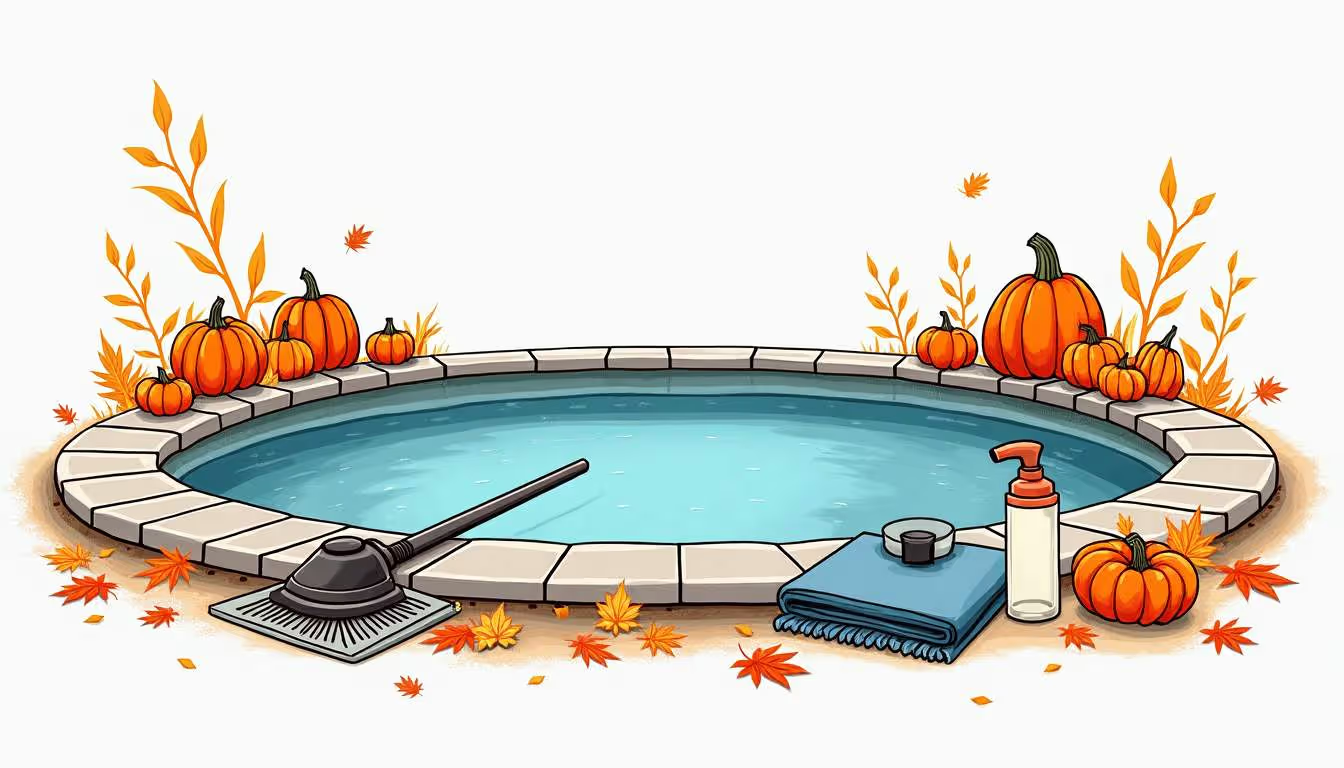Timely Tips for Pool Technicians: Expert Advice for Every Season
Pool technicians play a crucial role in maintaining the health, safety, and enjoyment of swimming pools year-round. With the pool service industry expected to grow steadily—projected to reach a market size of over $5 billion by 2027—staying ahead with seasonal strategies is essential for success. Whether managing residential pools or commercial aquatic facilities, understanding the nuances of each season can optimize service efficiency, reduce costly repairs, and enhance customer satisfaction.
This comprehensive guide offers expert advice tailored for pool technicians, focusing on timely tips for spring, summer, fall, and winter. By integrating best practices and leveraging modern service management tools, technicians can streamline operations and deliver exceptional value throughout the year.
Spring: Preparing Pools for a Successful Season
Comprehensive Pool Opening Procedures
Spring marks the transition from winter dormancy to active pool use. A thorough pool opening is critical to ensure water quality and equipment functionality. Technicians should start by removing winter covers and debris, inspecting the pool shell for cracks or damage, and checking all mechanical components such as pumps, filters, and heaters.

Water chemistry balancing is paramount during this phase. Algae growth can rapidly accelerate if pH, alkalinity, and sanitizer levels are not adjusted properly. Industry data shows that pools with improperly balanced water in spring are 40% more likely to require emergency treatments during summer months. Additionally, the introduction of fresh water can alter the chemical composition, making it essential to test and adjust levels frequently during the initial opening period. Regular testing not only helps maintain crystal-clear water but also extends the life of pool equipment by preventing corrosion and scaling.
Equipment Inspection and Maintenance
Spring is an ideal time to perform preventative maintenance on pool equipment. This includes lubricating O-rings, inspecting electrical connections, and cleaning or replacing filter media. Proactive maintenance reduces the risk of mid-season breakdowns, which can be costly and damage customer trust. Furthermore, technicians should take the opportunity to assess the condition of pool liners and tiles, as wear and tear can lead to leaks and increased water loss if not addressed promptly.
Technicians should also verify automation systems and smart controllers, ensuring remote monitoring capabilities are functioning. Leveraging software platforms designed for service companies can help schedule routine maintenance tasks and track equipment history, improving operational efficiency. As technology advances, many pools now feature advanced monitoring systems that can alert technicians to potential issues before they escalate, allowing for timely interventions. This not only enhances the customer experience but also promotes a culture of safety and reliability within the pool service industry.
Summer: Managing Peak Demand and Ensuring Water Safety
Optimizing Service Routes and Scheduling
Summer is the busiest season for pool technicians, with increased service calls and emergency repairs. Efficient route planning is essential to maximize productivity and minimize travel time. Advanced scheduling software that integrates GPS routing and real-time updates can help technicians respond swiftly to urgent issues while maintaining regular maintenance visits.

Data from leading pool service companies indicates that technicians using route optimization tools can increase daily service calls by up to 25%, directly boosting revenue and customer satisfaction. Moreover, these tools can analyze historical data to predict peak times for service requests, allowing technicians to prepare accordingly. By anticipating high-demand periods, companies can allocate resources more effectively, ensuring that they have enough staff on hand to meet customer needs without compromising service quality.
Maintaining Water Quality Amid High Usage
High temperatures and heavy pool usage during summer create challenges in maintaining water clarity and sanitation. Technicians must frequently test and adjust chlorine levels, pH, and stabilizers to prevent bacterial growth and algae blooms.
Emerging trends in pool chemistry include the use of saltwater chlorination and mineral sanitizers, which can reduce chemical usage and improve swimmer comfort. Staying informed about these technologies allows technicians to offer tailored recommendations that meet customer preferences and regulatory standards. Additionally, educating pool owners about the importance of regular water testing and the signs of chemical imbalance can empower them to take proactive measures, ensuring a safe swimming environment throughout the season.
Addressing Common Summer Equipment Issues
Summer heat can strain pool pumps and heaters, leading to overheating or mechanical failure. Regular inspection of motor bearings, impellers, and electrical components is vital. Additionally, technicians should educate customers on proper pool cover usage to reduce evaporation and energy costs.
Furthermore, it’s crucial to remind customers about the importance of maintaining their filtration systems, especially during peak usage. A clogged filter can lead to poor water circulation and increased strain on the pump, potentially resulting in costly repairs. Technicians can provide guidance on how often to clean or replace filter media, as well as tips on recognizing early signs of equipment distress. By fostering an ongoing dialogue about equipment care, technicians can help customers extend the life of their pool systems and enjoy a worry-free summer season.
Fall: Preparing Pools for Off-Season and Winterization
Effective Pool Closing Techniques
As temperatures drop, preparing pools for winter is essential to protect equipment and prevent damage. Fall pool closing involves thorough cleaning, chemical balancing to prevent algae and scale buildup, and lowering water levels to avoid freeze damage. This process not only safeguards the pool structure but also ensures that the water remains clear and free from contaminants that could lead to costly repairs come spring.

Technicians should also inspect and winterize plumbing lines, valves, and pumps by draining water or using antifreeze products designed for pools. Proper winterization can reduce repair costs by up to 50%, according to industry reports. Additionally, covering the pool with a high-quality winter cover is crucial; it helps keep debris out and minimizes the risk of water contamination, which can lead to algae growth. Regular checks on the cover throughout the winter can also prevent damage from heavy snow accumulation or ice formation, ensuring that the pool remains in excellent condition for the next season.
Inventory Management and Equipment Upgrades
Fall provides an opportunity to assess inventory levels and plan for equipment upgrades or replacements during the off-season. Technicians should review filter cartridges, seals, and automation components to ensure availability when spring arrives. This proactive approach not only streamlines the reopening process but also enhances the overall efficiency of pool operations, allowing for a smoother transition into the busy summer months.
Implementing a digital inventory management system helps track parts usage and forecast demand, minimizing downtime and improving customer service responsiveness. By analyzing past usage patterns, technicians can better predict which items will be needed most frequently and adjust their orders accordingly. Furthermore, staying updated with the latest technological advancements in pool equipment can lead to significant energy savings and improved performance, making it a wise investment for both pool service companies and their clients. As the industry evolves, embracing smart pool technologies can also enhance user experience, offering features like remote monitoring and automated maintenance schedules that cater to the modern pool owner’s lifestyle.
Winter: Staying Proactive During the Off-Season
Monitoring Pools in Cold Weather
Even when pools are not in use, technicians must monitor water levels and equipment to prevent freeze damage and maintain structural integrity. Remote monitoring technologies enable real-time alerts for temperature fluctuations or water leaks, allowing timely interventions. This proactive approach not only safeguards the pool but also ensures that any potential issues are addressed before they escalate into more significant problems, which can be both time-consuming and costly to repair.
Regular site visits during winter can identify potential issues such as cracked pool shells or damaged covers. Early detection reduces costly repairs and extends the lifespan of pool assets. Furthermore, these visits provide an opportunity to assess the condition of pool accessories, such as ladders and diving boards, which may also be susceptible to winter wear and tear. By keeping a close eye on all components, technicians can ensure that everything is in optimal condition for the next swimming season, giving pool owners peace of mind.
Professional Development and Business Planning
The off-season is an ideal time for technicians to enhance their skills through certifications and training on emerging technologies like energy-efficient pumps and automated chemical dosing systems. Staying current with industry standards not only improves service quality but also positions technicians as trusted advisors. Engaging in workshops and seminars can also foster networking opportunities, allowing professionals to share insights and best practices that can be beneficial for their businesses.
Additionally, winter months allow for strategic business planning, including marketing campaigns, customer outreach, and software system upgrades. Investing in a robust service management platform can streamline invoicing, customer communication, and job tracking, setting the stage for a successful upcoming season. This is also a prime time to analyze customer feedback and service performance from the previous year, enabling businesses to refine their offerings and tailor their services to better meet client needs. By taking these steps, pool service companies can not only enhance their operational efficiency but also strengthen their relationships with customers, ensuring loyalty and satisfaction when the warm weather returns.
Leveraging Technology for Year-Round Success
Integrated Service Management Platforms
Modern pool service companies increasingly rely on integrated software platforms to manage scheduling, billing, inventory, and customer communication. These tools provide real-time data insights, enabling technicians to make informed decisions and improve operational efficiency.
For example, automated reminders for seasonal maintenance tasks help ensure no critical steps are overlooked, while mobile apps allow technicians to update job statuses and capture customer signatures on-site, enhancing professionalism and transparency.
Data-Driven Customer Engagement
Utilizing customer data to personalize service recommendations can increase retention and upsell opportunities. Seasonal tips, maintenance reminders, and equipment upgrade suggestions delivered via email or SMS keep customers engaged and informed.
Analytics from service platforms can identify patterns such as frequent equipment failures or chemical imbalances, allowing technicians to proactively address underlying issues and demonstrate value beyond routine maintenance.
Conclusion
Pool technicians face unique challenges and opportunities throughout the year. By adopting season-specific best practices—from meticulous spring openings to vigilant winter monitoring—and leveraging cutting-edge technology, technicians can enhance service quality, reduce operational costs, and build lasting customer relationships.
Staying informed about industry trends, investing in professional development, and utilizing comprehensive service management solutions position pool technicians as indispensable partners in aquatic care. Embracing these timely tips ensures readiness for every season and sustained success in a competitive marketplace.








